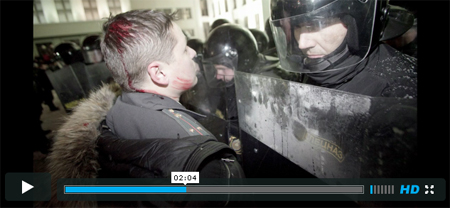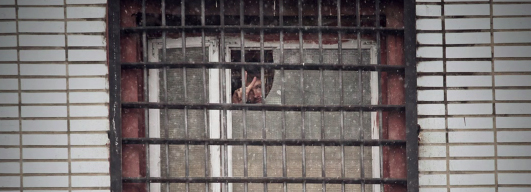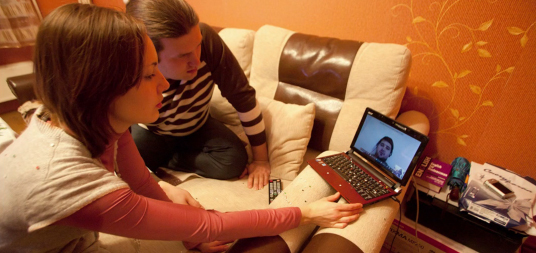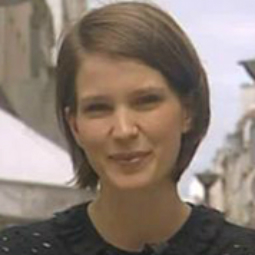Belarus: they got the opposition leader, but forgot the internet

Belarus edged one step further into obscurity last week when it banished the country’s main opposition leader to jail. But despite the regime’s tough stance on dissidents, it seems to have overlooked a potentially invaluable weapon – the internet.
The regime sparked international outrage Saturday when judges sentenced the country’s main opposition leader, Andrei Sannikov, to five years in a remote penal colony.
The decision was considered one more nail in the coffin for the unreformed post-Soviet state, ruled with an iron fist by Europe’s “only remaining dictator”, Alexander Lukashenko, since 1996.
The US and European Union are now considering stepping-up sanctions against the regime, which would worsen an already dire economic state of affairs. Last week, Russia unexpectedly refused to back a $3bn bailout, leaving the country begging for a rescue package.
Sannikov, who?
A former deputy foreign minister, Sannikov ran against Lukashenko in the presidential election on 19 December last year, but only managed to garner 2% of the vote. He did get more votes than any of the other of the nine opposition candidates. Lukashenko, on the other hand, lapped up 80%.
The notorious strongman had promised a fair vote (in exchange for $3.6 billion Western aid package). No wonder then that tens of thousands of people took to the streets the day after the election to protest against what was, quite clearly, a serious case of electoral fraud. And that’s when Sannikov, along with 700 other people, was arrested and charged with “anti-state violence”. Independent observers said it was the harshest crackdown Mr Lukashenko had ever orchestrated.
Photojournalist Alexander Vasukovich documented the December protest and its aftermath. He published the film on Vimeo earlier this week.
Watching the film, I wondered how Alexander had managed to film so close to the police. “Nobody thought they would react so violently,” he explained. “And they didn’t start arresting journalists until right at the end.” He’s more concerned about the opposition supporters he documented in the film. “Many of the people in my pictures are in jail. I’m scared the police will ask me about them.”
Until recently, his films focused on non-political issues: a wedding, an intensive care unit at a hospital, rope jumping off bridges in the capital. Why a film critical of the government? “Large parts of the population here are passive. They don't care about stuff until it touches them personally. I hoped my film would change that,” he says.

Alexander argues that Belarussians lost interest in politics after the fall of the USSR - elsewhere historic - brought little change to their lives. Since Belarus declared independence from the Soviet Union in 1991, its people have only known one president. “They criticise Lukashenko, but when you ask them ‘If you don't like the current president, why don't you choose another?’ most of them answer: ‘How do you know he’ll be any better?’”
After decades of instability, Belarussians are happy just to have food on their plates, says Alexander. “Most people in our country do not know exactly what democratic values are. They have money to buy food, they have work, a small, but stable salary. They do not realise that they could live much better.”
Belarus meets internet
While Belarus remains diplomatically isolated, increasing numbers of Belarussians are connecting themselves to the rest of the world via the internet. According to the United Nations’ communications agency ITU, the number of internet users in Belarus shot up from just 200,000 in 2001 to some 4.5 million – or half the population – in 2010. Ten thousand of those use Facebook – a network which remains available, at least for most of the time.

“Using the internet is the only way in our country to learn something about politics or read alternative news,” says Alexander. While the internet remains largely accessible however, Alexander says that the authorities are not blind to it either. “Opposition sites are blocked [on computers] in government buildings and universities. And during the protest rally [in December], they blocked Gmail, Facebook, Twitter and opposition media sites across the board.”
For now, Alexander’s documentary remains on Vimeo for all to see. Does he think he will be sought out by the regime? “Perhaps”, he says. “But three days have gone by, and I am still free!”
All images taken from Alexander's documentary, also available on Vimeo here.




3 Comments